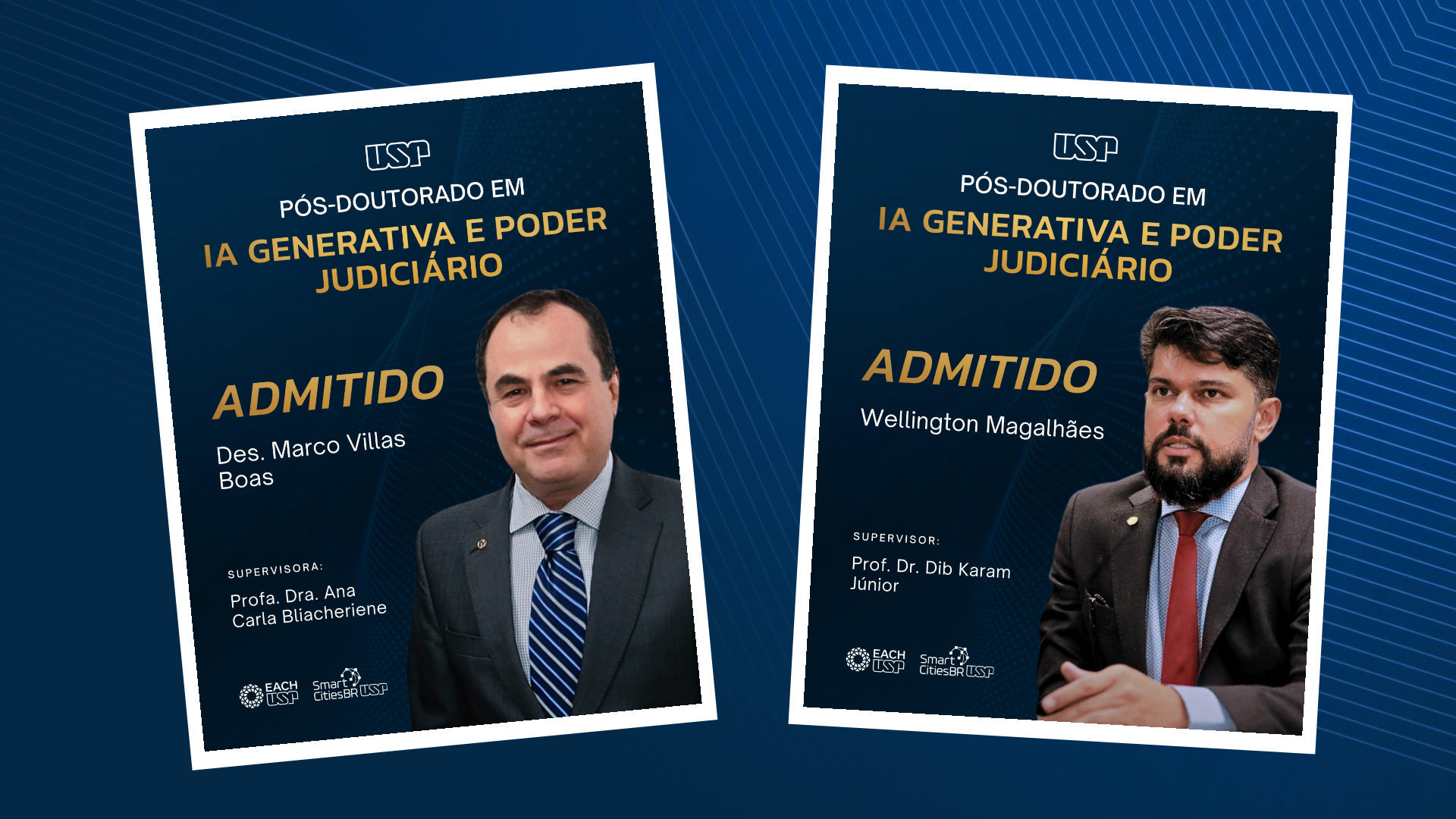
The Superior School of the Judges of the State of Tocantins (Esmat) enthusiastically celebrates the acceptance of the post-doctoral projects of its directors: Justice Marco Villas Boas, general director; and Judge Wellington Magalhães, deputy director, in the prestigious post-doctoral program in Generative AI and the Judiciary at the University of the state of São Paulo (USP).
The research by Marco Villas Boas, entitled on “Hórus Project: development of a Generative Active AI tool to support the judicial decision making (SARA) at the Court of Justice of the State of Tocantins”, aims to explore the potential of Generative Artificial Intelligence to optimize the management and judgment of civil cases. The project seeks to develop new approaches to the use of emerging technologies in the Judicial System, promoting greater efficiency and speed in judicial proceedings, with a direct impact on improving service to the population. This work will be supervised by Professor Ana Carla Bliacheriene.
The project by Magistrate Wellington Magalhães, entitled on “Generative AI and the Judiciary: Applications in the Context of Civil Lawsuits in the district of Cristalândia-TO”, also aims to bring significant innovations to the Judiciary, focusing on the application of Generative Artificial Intelligence to improve the administration of justice. His research, under the supervision of Professor Dib Karam Júnior, aims to transform the understanding and application of AI tools within judicial practices, always aiming to improve the quality and accessibility of the services provided to citizens.
The acceptance of these projects by USP is a reflection of the commitment of Esmat to innovation and the continuous advancement of the Judiciary of the state of Tocantins. Incorporating artificial intelligence into everyday judicial life is a fundamental strategy for transforming the Judicial System, making it more agile, fair and accessible.




